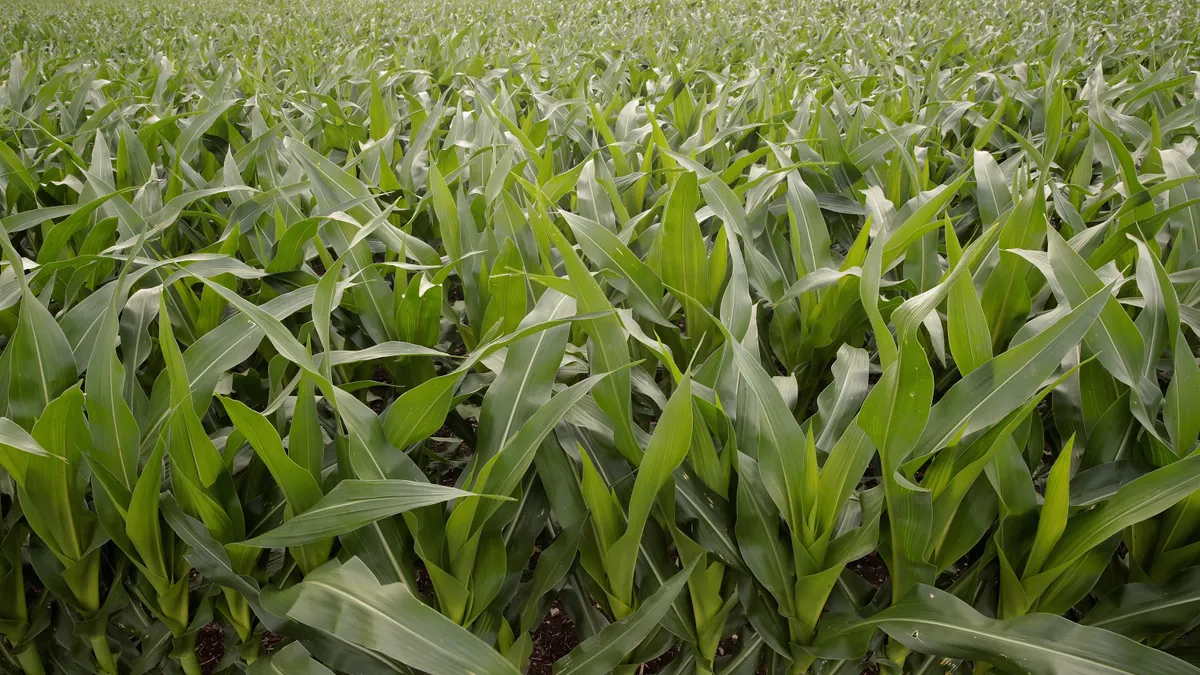Dive Brief:
- The U.S. is moving to once again raise tariffs on phosphate fertilizers from Morocco just months after announcing a large cut in duties to lower crop input prices.
- The Commerce Department said last week that it would raise tariffs on phosphate imports from Morocco to 14.21% from 2.12%. It also moved to lower duties on Russian phosphate fertilizer to 18.83% from 28.5%.
- The proposed new rates would go into effect in November and apply retroactively to 2022 imports. The changes come after U.S. fertilizer company Mosaic petitioned the agency for action, saying tariffs are needed to create a competitive marketplace.
Dive Insight:
Farm groups have pushed for expanded fertilizer imports after supply chain disruptions in 2021 squeezed supply and sent prices soaring. Although fertilizer prices have come down from their peaks, farmers say that higher tariffs would only add to their costs during an unfavorable market.
“The price of corn has dropped, and input costs are already high, so the Commerce Department’s decision is the last thing farmers need,” National Corn Growers Association President Harold Wolle said in a statement.
The tariffs on Morocco are largely aimed at the country's largest exporter OCP, which stopped shipping to the U.S. over higher duties implemented in 2021. OCP is appealing the Commerce Department decision, saying the ruling was based on flawed methodology in evaluating the company's rights to mine phosphate ore.
The new tariff is closer to, though still below, the 19.97% rate approved in 2021.
"As soon as the conditions allow, we are ready to resume our critical role as a reliable, high-quality provider of sustainable phosphate fertilizers that are essential in enabling U.S. farmers to feed their fellow citizens and the wider world," the exporter said in a statement.
The shift toward higher tariffs comes as U.S. fertilizer companies post lower profits due to a drop in prices. Mosaic last week reported a 26% decline in first-quarter revenues over a year ago, "reflecting the impact of lower selling prices."
Mosaic President and CEO Bruce Bodine acknowledged the shifting tariff rates have created volatility in the marketplace, but said the duties have "worked as intended" in counteracting the effect of government subsidies granted to exporters in other countries.
"We know that, obviously, it's got some uncertainty around it," Bodine said during an earnings call last week. "But I do believe the U.S. farmers have adapted to that and it's just modifying trade flows and bringing more competition and a more diverse slate of importers here in North America.”











